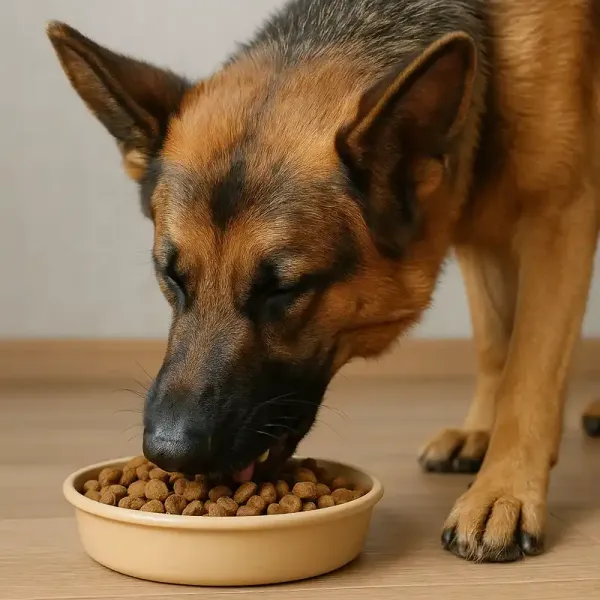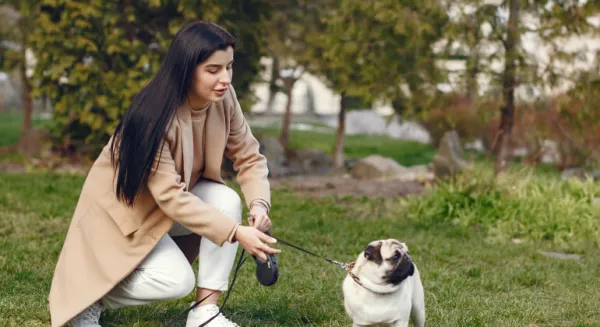Keep your dog safe by knowing which foods to never feed them. Learn about toxic items like chocolate, grapes, onions and alcohol, in this complete guide
Dogs are naturally curious eaters, which means they often get into foods that can harm them. Each year, thousands of pets end up in the vet’s office due to accidental poisoning from common household foods. Feeding your dog the wrong things can lead to serious health problems, some even life-threatening. Knowing which foods to avoid keeps your dog safe and healthy, and it can save you from expensive emergency visits. This guide breaks down the most dangerous foods and explains why they shouldn’t be in your dog’s bowl.
Common Toxic Foods for Dogs
You might think sharing a bite with your furry friend is harmless, but some everyday foods are actually dangerous for dogs. These toxic foods can cause anything from mild discomfort to severe poisoning or even death. Knowing which ones to avoid is crucial to keeping your pet safe. Here are some of the most common offenders you should never let your dog eat.
Chocolate
Chocolate is one of the most well-known toxic foods for dogs. The problem lies in two compounds: theobromine and caffeine. Dogs metabolize these much slower than humans, making even small amounts dangerous. Eating chocolate can lead to symptoms like:
- Vomiting and diarrhea
- Increased heart rate
- Restlessness or hyperactivity
- Tremors or seizures
Dark and baking chocolate contain the highest concentration of theobromine, so they're especially risky. If your dog munches on chocolate, call your vet immediately—early treatment can prevent serious complications.
Grapes and Raisins
Grapes and raisins may look harmless, but they can cause sudden kidney failure in dogs. Unfortunately, there’s no known safe amount—just a small handful can be toxic. Signs of grape or raisin poisoning include:
- Vomiting and diarrhea within a few hours
- Lethargy and weakness
- Decreased appetite
- Increased thirst and urination, followed by reduced urination
Kidney damage can become severe very fast. If you suspect your dog ate any grapes or raisins, get veterinary help immediately.
Onions, Garlic, and Chives
All forms of onions, garlic, and chives—raw, cooked, powdered—are harmful to dogs. They contain substances that damage red blood cells, which can lead to a type of anemia. Dogs may not show symptoms right away, but eventually you might notice:
- Weakness or tiredness
- Pale gums
- Rapid breathing or heart rate
- Dark-colored urine
Garlic is sometimes thought to be safer in small amounts or cooked, but the risks remain. Avoid all these foods entirely to keep your dog’s blood healthy.
Alcohol and Caffeinated Beverages
Alcohol affects dogs much like it does people—but even a tiny sip can cause serious trouble. It depresses the nervous system and can lead to vomiting, diarrhea, difficulty breathing, and even coma. The liver also suffers damage from alcohol, and dogs don’t have the same tolerance as humans.
Caffeinated drinks like coffee, tea, and energy drinks contain caffeine, which is toxic in small doses. You might spot these signs if your dog consumes caffeine:
- Restlessness and rapid breathing
- Heart palpitations or elevated heart rate
- Muscle tremors
Keep drinks containing alcohol or caffeine out of reach at all times.
Xylitol (Artificial Sweetener)
Xylitol is a sugar substitute found in many sugar-free gums, candies, baked goods, and even peanut butter. It looks harmless but can cause dangerous drops in blood sugar levels (hypoglycemia) within minutes of ingestion. Symptoms may include:
- Weakness or wobbliness
- Collapse or seizures
- Vomiting
Xylitol can also cause severe liver failure in dogs. Look closely at ingredient labels and avoid anything containing xylitol around your pet.
Recognizing these common toxic foods is the first step to preventing accidents. Always keep these items away from your dog and act quickly if you suspect exposure. Your vigilant care makes all the difference.





